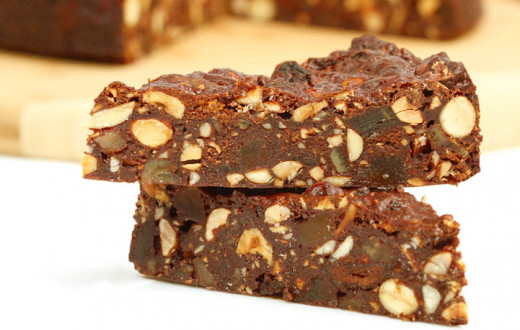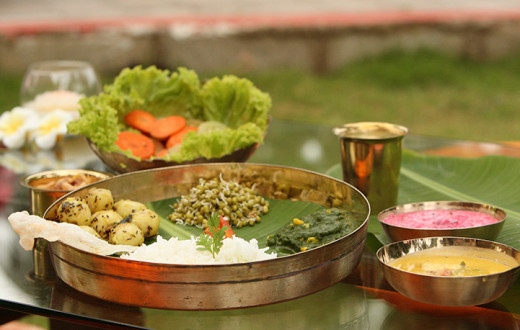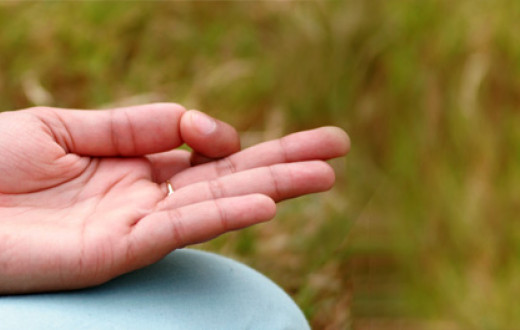By Sejal Shah | Posted: January 14, 2019
The popularity of the ancient art and science of Ayurveda is exploding, not just in the west but all over the globe. Ayurveda, or science(Veda) of life(Ayur), as translated from Sanskrit (the ancient language of India), seeks to help the practitioner achieve optimal wellness through balance and integration, and seeks to treat the root cause of illness, rather than the symptoms, based on your unique body type.
Ayurveda proposes that everything in the universe is made up of five basic elements– space, air, fire, water, and earth. Ayurveda works on the qualities of these five basic elements, and reminds us of the importance of keeping these elements balanced for a healthy body and mind.
With the ever-present and overwhelming amount of information and stimulation that technology provides, it gets easier and easier to ignore the intuitive wisdom of our bodies and our physical relationship with nature. The knowledge of Ayurveda puts us back in touch with our innate wisdom. It helps to us to understand the archetypes of our bodies, the imbalances of it, and even provides us the knowledge to customize our meal plans, daily routine, and self-care practices that go well with the intuitive intelligence and wisdom of the body in response to seasonal changes.
This winter, listen to your body and use the healing power of this ancient science for a healthier and more vibrant you. Here are some Ayurveda-inspired self-care practices for winter.
1. Drink warm or hot water
According to Ayurveda, Agni, or fire, is the foundation of your digestive health. Your digestive process is dampened every time you pour cold water into your stomach. During the winters, drink a hot cup of plain water every 1-2 hours. Ayurveda suggests not to drink water during meals, but instead to drink hot water about 30-60 minutes after you eat, as this will help with digestion.
2. Use plenty of warming spices
Ayurveda explains that cold weather increases the vata, or air element, in the body. Eating plenty of warming spices, like cloves, cinnamon, black pepper, nutmeg, cardamom, ginger, and turmeric, helps balance the body during the winter months. These spices help reduce the vata element and alleviate joint pain, arthritis, cough and colds, seasonal mood disorders, and even depression; all things that are aggravated by cold weather.
For years every winter, I have been using my mother’s traditional recipe of “winter fenugreek balls”, made from fenugreek (methi) flour, dry ginger powder, organic jaggery, and clarified butter (ghee), mixed with shredded coconut and sesame seeds for better digestion, natural warmth, and to keep joint pains at bay.
Another traditional recipe is Turmeric balls, made from turmeric powder, dry ginger powder, organic jaggery, and clarified butter (ghee). These are great for keeping a seasonal cough and cold away.
3. Incorporate Self-Abhyanga, an Ayurvedic massage, in your daily routine
Three years ago, while at an Ayurvedic retreat at Shankara Ayurveda Spa in Boone NC, I learned the Ayurvedic practice of self-abhyanga, or a warm oil massage and soothing treatment for imbalanced vata. Just 10 minutes self-care practice, traditionally done in the morning before bathing, is especially useful as a daily ritual during the winter months. “Vata by its nature is dry and cold. With abhyanga, the warm oil penetrates the skin and lubricates the whole body, a quality that is the complete opposite of vata, and hence it is balancing. Abhyanga also opens the nadis for the prana to flow smoothly and even helps to direct ama (toxins) from the tissues to the organs of elimination” explains Vaidya Lokesh Raturi, an Ayurvedic expert from India who visits the Shankara Ayurveda Spa frequently to guide and mentor different Ayurveda-based retreats.
4. Drink golden milk at bedtime
Before going to bed, try drinking a cup of warm milk with a pinch of turmeric and powdered cardamom or dry ginger, and see how deep and refreshing of a sleep you have.
5. Practice Yoga and Ayurveda together
Ayurveda is the sister science to Yoga. Though Ayurveda and yoga are complete sciences by themselves, it is important to integrate both in order to bring out the full healing benefits and spiritual potential of each. When combined, yoga and Ayurveda can strengthen our system and bring us into much-needed balance, as well as providing a fulfilling way of life and a complete model of preventive health.
A holistic yoga practice balances all the three doshas, or constitutions. However, it’s definitely helpful to understand one’s body type and how to plan an asana sequence that is nourishing rather than depleting for the body. For all vata imbalances, it is advised to practice in a quiet, grounded, systematic way, coordinating each movement with the breath, holding the poses for a longer time, and being still in the poses. Heating pranayamas like Suryabhedan and Agnisara could be a great addition to your pranayama practice during these months.
Vatas usually have more trouble grounding themselves than other doshas. Being still is the vata challenge as well as reward. Including a calming and centering meditation technique like Sahaj Samadhi into your daily self-care routine will help to soothe vata imbalances.
Use these secrets of Ayurveda to make your winters more enjoyable and rejuvenating. Enjoy your winters with the power of Ayurveda!
Sejal Shah, E-YRT 500 Sri Sri Yoga Teacher, YACEP, Art of Living Teacher, NYU Post Graduate Medical School approved Yoga-CME retreat facilitator, Mind-Body Wellness Writer, Homeopath






































